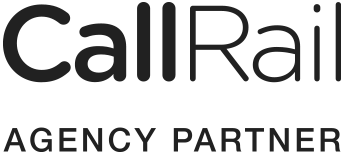Did you know that SEO for startups isn’t rocket science? In fact, you can start as soon as you get to know the ropes. We created this article because we know nothing is impossible as long as you’ve got the determination to begin.
Here are 9 actionable steps to get you started:
- Perform a SWOT Research
- Create a Content Marketing Strategy
- Conduct Competitor Research
- Establish Your Social Media Presence
- Build Your Brand
- Aim for an SEO-friendly Website
- Improve Your Trustworthiness
- List Your Business In Top Directories
- Fix All Technical Issues
While we say you can get started right away, we also want to give you a heads up that there are no shortcuts in the process. But know that every effort is worth it in the end.
We’re also going to share 5 common pitfalls you need to know as you startup your business’ SEO. These are:
- White Hat vs Black Hat SEO
- Hiring SEO Experts (Choosing who to partner with)
- Your Website’s Content Plan
- Traffic Milestones (Defining What’s Right and Effective)
- Tracking & Optimization
Now, you may be wondering how can SEO increase your traffic and grow your business?
Take a look at Sleep Number Corporation, a bed and bed accessories manufacturer in Minnesota. The company ordinarily did business in-store. But when the pandemic hit in 2020, they saw their transactions decrease by 40%. This led them to change their business plan quickly.
“Our keyword, audience, and creative plans needed to help us reach people with high intent who were researching potential purchases online or buying something from the safety of their homes.” – Josh Peterson, Sleep Number’s Senior Director of Digital in an article on Think With Google
As the company adjusted its website and its business plan, Sleep Number saw a 200% increase in sales compared to the previous year. They adjusted their strategy by going digital and adapting to the changes in consumer behavior.
This is how SEO can power your business. Optimizing your home on the web by making it easy for customers to find will help you achieve your business goals.
The Important Matters To A Startup Business
We’re going a little deeper and ask, what matters most to you as a startup business? Defining what’s important will be the starting point and driving force of all that you’ll do. This will also help you answer the question why “Why do I want my business to be online?
It may be a no-brainer to even ask but clearly defining the answers will give you the clarity you need to make the right decisions.
Each startup has its own objectives and goals that make it stand out from the competition. And it’s that uniqueness we want you to start with. The things that matter to you play out in 3 ways:
- These make up your digital presence’s core components
- These define how your business connects with your customers
- These help you choose the most relevant keywords, website design, customer experience, and content among others
Aside from what you already have in mind, these 3 practical goals also round up what matters to a startup:
- Increasing Revenue
- Driving Sales
- Gaining More Leads
SEO can help you with all of that as your startup becomes visible where people are searching for a business like yours – search engines. And as you are seen, traffic will come naturally.
Allocating Marketing Budget Effectively
What’s great about digital marketing is how every effort can be effectively measured by its results. What you spend on SEO can be efficiently evaluated so you can see what’s working and what isn’t. So how do you allocate a marketing budget effectively to achieve great results?
One way to start is to go back to your business goals and identify what resources you’ll need to achieve them. SEO toolset provider, Ahrefs, defines this as marketing objectives – the important elements that drive your strategy and serve as your points of evaluation.
Marketing expert, Hubspot, recommends considering these 9 factors during budget planning:
- Technology
- Research
- Automation
- Production
- Paid Advertising
- Branding
- Content Marketing
- Traditional Advertising
- Contingency
Consider plotting them out according to importance and urgency even if you’ll need to include all 9 factors. Plot your expenses at a reasonable pace and use the insight from the past months’ performance to inform your financial decisions later in the year. This may involve hiring a web consultant or a digital marketing consultant to carry out some of the work.
Additionally, evaluate the tools/channels you’ve invested in semi-annually or quarterly to see which one is working for your business. Consider looking for an alternative or adjust your strategy for the ones that are performing below expectations. This way you get to be cost-effective while making sure you’re meeting your business’s objectives.
Lastly, allocate your budget with a long term and short term outlook. Factor in efforts that will convert to business growth in the near future and ones that will strengthen your presence and customer base beyond today.
9 Actionable Steps To Drive Traffic From Zero To Successful
Let’s move on to driving traffic to your website now that we’ve laid the foundations of a good marketing strategy.
Perform SWOT Research
We’re all familiar with SWOT being used in business plan discussions in the boardroom. How does this fit into SEO?
You can use SWOT in the context of your website and identify which parts are contributing to your business growth and which ones are detrimental to it. Leverage on your strengths and opportunities, improve your weaknesses, and close the gaps that come from threats.
Here are examples:
- Strengths: What are your unique selling points? What pages are you seeing the most traffic in?
- Weaknesses: What parts of your business are customers reporting to have difficulty with?
- Opportunities: What interests resonate the most with your customers? What kind of experience are they expecting from you as they visit your website?
- Threats: What areas are your competitors doing well that you’re yet to improve at? What keywords are they ranking for better and are increasing the gap between you and them?
Create A Content Marketing Strategy Focused On User intent
Google’s search features are adapting to user’s search intent to show the most relevant results to their queries. Marketing for new brands is being the answer to those questions. This is one of the most efficient ways to drive traffic from zero to substantial success.
Content marketing pro, SEMrush, shares four critical elements to crafting your strategy:
- Positioning Your Brand & Product – Position your brand by highlighting its unique personality, and your product by how it solves customers’ problems.
- Your Value Proposition – Think about the kind of content that would set you apart and establish your credibility and relevance.
- Your Business Goals – Marketing efforts should translate to an increase in revenue. Think about your KPIs to help you choose the content that’s best for your customers and your business.
- Your Strategy To Achieve Business Goals – This is where you choose which resources will deliver content to your customers the best way possible while also meeting your business goals.
Conduct A Competitor Research
Competitor research is to get insight into what’s working for your competitors in terms of content, keywords, backlinks, customer profile, and the like. The main goal of this research is to help you be strategic in your startup SEO game plan. This will also help you engage your customers better and close the gap between consideration and action.
Photo by Alistair Rennie & Jonny Protheroe on Think With Google
Here are four things you can do to analyze the competition:
- Identify Your Competitors – Identifying your competitors is to specifically pinpoint who’s in the same market, targeting the same customers, and offering the same solutions as you. Buffer provides a useful illustration:
Photo by Masha Maksimava on Buffer
- Identify Keyword Gaps – These are relevant keywords that your competitors are ranking for that you aren’t yet. Close the gap by optimizing your new website for SEO and creating better content that answers the user’s intent.
- Checkout Their Backlink Profile – Backlinks are all the websites that refer back to a website. The competition here is the authority of the websites that link back to your competitor versus yours. Creating quality content and delivering your services as promised is crucial in earning quality backlinks.
- Look Into Their Popular Content – The popularity of a website’s page speaks of the value it offers customers which help translate into sales. Check out which pages are getting the most traffic, what keywords they’re using, and the content that’s published.
Establish Your Social Media Presence
Establishing your presence on social media won’t affect search rankings the way you might think it will. The number of likes, shares, or retweets don’t directly influence how you’ll appear on Google’s search engine results pages (SERPs).
Rather, it’s the possible exposure your website will get as people become aware of your company through social media. This happens when you publish a post or tweet that’s relevant to your audience. It’s that value and relevance that would prompt them to click the link in your post or bio.
What happens next is a share or retweet by everybody who found it valuable. The followers of those who initially shared your post may find it relevant too and repeat the cycle. This would then increase your website’s traffic and establish its credibility over time. The key here is in choosing the platform where your customers are and connecting with them there.
Build Your Brand As You Startup Your Business
Building your brand in the context of a new website’s SEO strategy is to position yourself in a way that answers your audience’s needs. It’s being relevant to make your startup visible to those searching for businesses like yours.
Another consideration is the user experience on your website. Is it easy to browse your content or make purchases on your website? These experiences will influence the way your brand is spoken of and whether or not customers will come back.
Consider these key components as you build your brand:
- Visuals – your logo, website’s design elements
- Content – the relevance of the topics you publish
- Voice – how you speak to your audience. This is seen in the copy on your content, website navigation, among others. This will also help you choose the most relevant keywords to your startup.
- Brand Story – this is the story of why you’re in business and why your target audience should choose you above the rest
Aim For An SEO-Friendly Website: On-page SEO
On-page SEO is to optimize your website by using relevant keywords and content that will make it easy for search engines to find you. This also helps Google understand what your website is all about. Additionally, this is how users find you as you’re now “speaking the same language” through the keywords on your website that answers their intent.
Check out these startup SEO tips to make your site friendly for search engines:
- Conduct a keyword research to identify which terms are your customers most using to answer their queries or look for products
- Place target keywords in important areas like the first paragraph of your blog post, titles, subtitles, and tags (H1 & H2)
- Include relevant keywords in your URLs, meta descriptions
- Update any content you may already have with keywords that answer user queries related to the topic
Improve Your Trustworthiness Using High Quality External Links
The proverbial saying “Tell me who your friends are and I’ll tell you who you are” is also in action SEO. But in this context, the relevance and credibility of the sources your websites link to will determine your site’s expertise, authority, and trustworthiness.
People naturally want to engage with content that’s backed up by well-established sources and accurate information. And the best way to do that is to choose your external links carefully.
Google recommends linking to websites that are respectable, reliable, and of high quality. In addition, relevance is still the key. Link to web pages that are connected to your line of business and the topic/s your content’s focused on.
Another startup SEO tip is to consider the authority of the page you’re linking to. You can determine this by using tools like Moz, SEMrush, Ahrefs, or Ubersuggest.
List Your Business in Top Directories To Improve Visibility
Online listings are the Yellow Pages of the 21st century. It’s where people look for businesses such as yours. Leveraging on these listings’ visibility will help increase your own and drive traffic to your site, possibly increasing revenue as customers find you.
Google Maps, Google My Business, and Yelp are great places to start.
- Google Maps lists your startup at the location where you’re in operation. Getting listed connects you to customers looking for businesses like yours within the local area.
- Google My Business lets you promote your business on Google Search and Google Maps through your business profile. You can display important information such as your website’s URL, contact details, and operating hours.
- Yelp is a well-established listing site that connects customers with local businesses while also functioning as a social networking platform. Customers can leave reviews that help a business establish its reputation and increase its popularity.
Fix Technical Issues Through An SEO Audit
Conducting an SEO audit for your website is making sure everything is in tip-top shape. It’s to see that nothing is keeping your website from turning traffic from zero to successful. This covers things such as user experience, broken links, content, and page indexing.
- User experience: check out your website’s loading speed, ease of navigation, and overall design for user experience.
- Broken links: these are the links that no longer work and have a 404 error when clicked. You can fix this by updating all internal pages that link to that URL or by removing the link.
- Content: auditing your content is checking to see that each piece is unique, no duplicates. Google recommends expanding or consolidating pages that have the same content like merging blog topics into one authoritative post.
- Indexing: check if all your website’s pages are being properly indexed through the XML sitemap of your website.
5 Common SEO Pitfalls To Avoid
Watch out for these common mistakes that will be detrimental to your SEO game plan. Avoid them by doing things right the first time and sticking with best practices.
White Hat VS Black Hat SEO
The best way to win is to play by the rules set by the gamemaster and the same is true for SEO. As you get to know how to play, you’ll come across certain techniques such as White Hat and Black Hat SEO.
White hat refers to techniques that abide by Google’s Webmaster Guidelines and provides the user with the most relevant search results through quality content. Black hat, on the other hand, uses techniques that oftentimes violates these guidelines with the intent to manipulate the search engines.
Our startup SEO tips here are to:
- Never buy links as this violates Google’s guidelines and may get your site penalized for doing so.
- Create high quality content and continue delivering beyond expectations for your products/services instead.
This way you can earn high quality editorial links that not only increase your rankings but your brand’s authority too. You may possibly see a growth in business too as people’s trust in your company grows.
Hiring Top SEO Experts
Partnering with an SEO expert can make or break your site. It’s crucial then to know what qualities you need to look for when hiring an SEO professional.
In a survey of nearly 4,000 job postings on Monster, LinkedIn, and Indeed, SEMrush analyzed SEO vacancies and identified what skills employers were looking for. Countries surveyed were the United States, the United Kingdom, Australia, Canada, and India.
These are the top skills they found from their survey:
- Proficiency in Google Tools such as Analytics & Search Console – 47%
- Knowledgeable in HTML & CSS – 45%
- Efficient in Keyword Research – 36%
- Skilled at Link Building – 34%
- Knowledgeable in Technical SEO – 31%
It’s a wide range of skills that encompass the important aspects that help a business build and scale their online presence. You can look for these skill sets as you scout for top SEO experts.
Use Evergreen & On-Trend Content For Long Term Results & Quick Wins
By now, we’ve established how important content is for your startup’s business because this is how you engage your customers and show your value proposition. Two types of content we recommend creating are evergreen and on-trend content. Going off track and publishing content your customers don’t need won’t bring you any traffic and won’t help in establishing your credibility.
- Evergreen content are topics whose relevance and search interest last for a long time. These don’t have seasons where they’re on peak in some and low in others. They also stay on people’s radars because of its usefulness and good quality. Examples of evergreen content are listicles, purchasing guides, how-to guides, and informational articles.
- On-trend content cover topics that people are buzzing about. This can help increase your website’s traffic because it’s something people are naturally searching for since it’s a topic in the spotlight.
Correct Traffic Milestones
Establishing clear milestones will help you determine when to stop and when to keep going. These put a healthy limit to your marketing efforts and at the same time concretize what goals need to be achieved.
This also brings us back to your business goals. What does success look like for you in a year? Is it to have X number of visitors to your website and to have X amount of sales?
These revenue targets will say how much traffic your website needs that will convert into sales. These will also inform your content marketing strategy and help you decide what kind of content will engage customers best.
Also, reevaluate your process every time you reach a milestone. You might be hitting your goals but sacrificing something just as important in between, like your health or your relationships. Make sure you’re not letting go of the other as you maximize opportunities.
Traffic & Optimization: Maintenance
Maintaining your website is to track the keywords, content, and user experience that’s working well for your business’ growth and customers. It’s also optimizing your website by updating the things above with new and relevant ones so you’re always serving the best results and services.
Tracking and optimization is best done through measurement. Look at your website’s metrics that tell you how it’s doing on the search engines and with your audience. Important metrics you can watch over are:
- Conversion rate
- Organic traffic
- Time spent on page
- Bounce rate
- Keyword ranking
- Visibility on the SERPs
Tools you can use to track these are Google Search Console, Ahrefs, or SEMrush. Continuously tracking and optimizing will make sure you get the right traffic and satisfy your customers that may lead to an increase in revenue over time. Missing out on these will lead to missed out opportunities in business growth and increases in revenue.
It’s a pretty long process. But again, know that every effort you’ll put into this will be worth it. You’ve got this! Feel free to set a discovery call with us so we can help your startup’s SEO get started.











